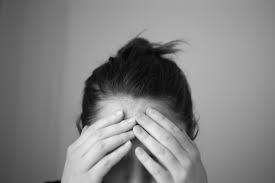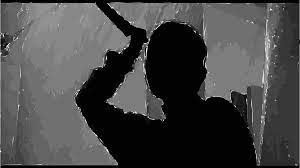Do you know what OCD is? It stands for Obsessive-Compulsive Disorder, and it’s a mental disorder that affects millions of people all over the world. The symptoms of OCD can be very disruptive and can cause a lot of stress and anxiety. In this blog post, we will discuss what OCD is, the symptoms of an OCD attack, and how to get help and treatment if you think you may have OCD.
Contents
What Is An OCD Attack?
An OCD episode or attack is a period of intense anxiety, fear, and distress related to obsessive-compulsive disorder. During an episode of OCD, people may experience intrusive thoughts or images that cause extreme discomfort. They may feel compelled to engage in rituals or behaviors that are meant to reduce the anxiety but only temporarily relieve it.
Common Symptoms Of OCD Attack

The symptoms of an OCD attack can vary from person to person, but they usually include feelings of excessive worry and fear, intrusive thoughts, and compulsive behaviors. Some of them are:
- Obsessive thoughts or worries.
- Ritualistic behaviors such as excessive handwashing, checking, counting, or cleaning
- Fear of being contaminated by dirt or germs.
- Anxiety and panic attacks.
- Sexual or religious obsessions.
- Strong obsession to put things in order.
- Difficulty concentrating on tasks.
- Feelings of worthlessness or guilt.
- hoarding unnecessary items.
- Become overly superstitious.
- Loss of interest in activities or hobbies once enjoyed.
- Obsessed with the idea that everything should be in order or symmetry.
What Triggers An OCD Attack?
The exact cause of OCD is unknown, but there are several theories as to what might contribute to it. Below, we have mentioned some of the possible causes:
- Genetic: OCD may be hereditary, so if there is a family history of OCD, you may have an increased risk of developing it.
- Biological Factors: such as genetics, brain chemistry, and hormones are believed to play a role and increase the chances of causing this OCD episode. The PANDAS theory suggests that OCD can be triggered by an infection from streptococcal bacteria, which causes inflammation in the brain and results in behaviors associated with OCD episodes.
- Environmental Factors: such as traumatic life experiences or stressful situations can trigger OCD attacks. some people who develop OCD after experiencing trauma, abuse, or neglect in their childhood are more likely to become prone to OCD episodes.
Diagnosis OCD Episode?
If you’re experiencing symptoms of OCD, the first step is to talk to your doctor. Your doctor will be able to determine whether the symptoms are caused by an underlying medical condition or if they may be related to mental health concerns such as OCD. They may also refer you to a mental health professional for further evaluation.
The mental health professional will ask about your symptoms and medical history. They may also recommend certain tests or assessments to determine whether you have OCD or not.
How To Stop An OCD Attack?
If you’re having an OCD attack, here are some steps you can take to help manage your symptoms.
- Relaxation: Take some deep breaths and try to relax your body by doing things like yoga or meditation. It may also help to practice relaxation techniques such as progressive muscle relaxation or guided imagery. Write down your disturbing thoughts or worries in a journal and then try to find more realistic or positive ways of looking at the situation.
- Distraction: When having intrusive thoughts, try to distract yourself by engaging in activities such as reading a book or playing a game. You need to try to resist your compulsion to engage in rituals like checking or washing.
- Positive Self-Talk: Talk to yourself in a positive and encouraging way. Constantly remind yourself that these intrusive thoughts are not real and that you have the power to control your behavior.
- Accept And Eliminate Intrusive Thoughts: Accepting that intrusive thoughts are a part of OCD can be helpful in managing them. Instead of trying to suppress the thoughts, acknowledge them and then let them go.
- Have Enough Sleep And Healthy Diet: Getting enough sleep and eating a healthy diet can go a long way in managing OCD symptoms.
- Ask for Help From A Doctor: If the symptoms are severe or persistent, it can be beneficial to seek professional help from a doctor or mental health provider. They can provide you with treatment and strategies that may be helpful in managing OCD symptoms. It is important to find a treatment plan that works best for you.
Treatment For OCD Episode

If you’re experiencing OCD symptoms, seeking treatment from a mental health professional is the best way to manage them. Treatment for OCD typically includes the following ways:
Therapy
CBT (Cognitive Behavioral Therapy) is a type of talk therapy that can be very effective in treating OCD. It helps to identify and challenge unhelpful thinking patterns, as well as replace them with more helpful thoughts. Exposure And Response Prevention (ERP) is a form of CBT where you are slowly exposed to the situations and objects that cause anxiety, and then learn how to cope with them.
Medication
Antidepressants can help reduce OCD symptoms by altering the levels of certain chemicals in the brain that are responsible for mood and behavior. For those who don’t respond to other treatments, deep brain stimulation (DBS) may be recommended as a last resort.
Support Group
Joining a support group can be very helpful in managing OCD. It can provide you with an opportunity to meet others who are going through similar experiences and share your feelings. Joining a support group also offers psychological benefits such as increased self-esteem, improved social skills, and better coping strategies.
Conclusion
OCD episodes can be triggered by a variety of things such as infections, environmental factors, and genetic predisposition. If you experience symptoms of OCD, it is important to talk to your doctor or mental health provider for evaluation and treatment. Treatment typically includes therapy and medication, but the most effective approach will depend on the individual’s needs.
Take care, and don’t forget that you are not alone! OCD is a mental health disorder characterized by obsessions and compulsions. If you have any queries regarding OCD treatment, ERP therapy experienced therapists at OCDMantra can help: Book a trial OCD therapy session


